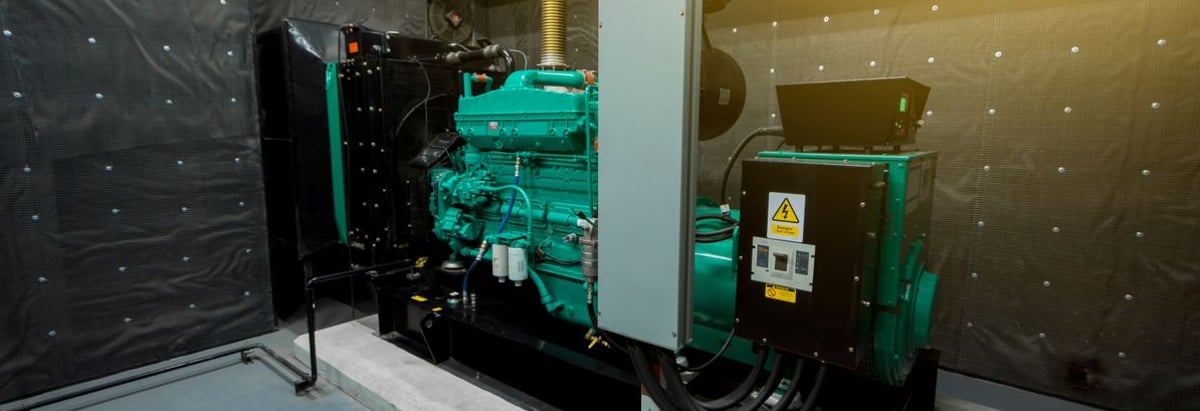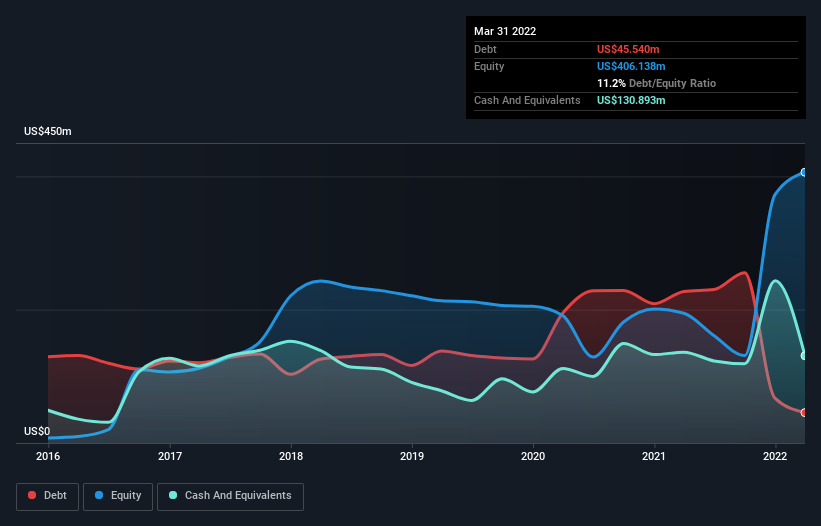
David Iben put it well when he said, 'Volatility is not a risk we care about. What we care about is avoiding the permanent loss of capital.' So it seems the smart money knows that debt - which is usually involved in bankruptcies - is a very important factor, when you assess how risky a company is. As with many other companies TPI Composites, Inc. (NASDAQ:TPIC) makes use of debt. But the more important question is: how much risk is that debt creating?
When Is Debt Dangerous?
Debt assists a business until the business has trouble paying it off, either with new capital or with free cash flow. In the worst case scenario, a company can go bankrupt if it cannot pay its creditors. However, a more usual (but still expensive) situation is where a company must dilute shareholders at a cheap share price simply to get debt under control. Having said that, the most common situation is where a company manages its debt reasonably well - and to its own advantage. The first step when considering a company's debt levels is to consider its cash and debt together.
View our latest analysis for TPI Composites
What Is TPI Composites's Net Debt?
The image below, which you can click on for greater detail, shows that TPI Composites had debt of US$45.5m at the end of March 2022, a reduction from US$227.4m over a year. However, it does have US$130.9m in cash offsetting this, leading to net cash of US$85.4m.

How Healthy Is TPI Composites' Balance Sheet?
According to the last reported balance sheet, TPI Composites had liabilities of US$425.5m due within 12 months, and liabilities of US$164.6m due beyond 12 months. On the other hand, it had cash of US$130.9m and US$394.1m worth of receivables due within a year. So its liabilities outweigh the sum of its cash and (near-term) receivables by US$65.1m.
Of course, TPI Composites has a market capitalization of US$638.2m, so these liabilities are probably manageable. However, we do think it is worth keeping an eye on its balance sheet strength, as it may change over time. Despite its noteworthy liabilities, TPI Composites boasts net cash, so it's fair to say it does not have a heavy debt load! The balance sheet is clearly the area to focus on when you are analysing debt. But it is future earnings, more than anything, that will determine TPI Composites's ability to maintain a healthy balance sheet going forward. So if you're focused on the future you can check out this free report showing analyst profit forecasts.
In the last year TPI Composites's revenue was pretty flat, and it made a negative EBIT. While that hardly impresses, its not too bad either.
So How Risky Is TPI Composites?
Statistically speaking companies that lose money are riskier than those that make money. And we do note that TPI Composites had an earnings before interest and tax (EBIT) loss, over the last year. Indeed, in that time it burnt through US$137m of cash and made a loss of US$194m. But the saving grace is the US$85.4m on the balance sheet. That kitty means the company can keep spending for growth for at least two years, at current rates. Summing up, we're a little skeptical of this one, as it seems fairly risky in the absence of free cashflow. When analysing debt levels, the balance sheet is the obvious place to start. However, not all investment risk resides within the balance sheet - far from it. For example - TPI Composites has 2 warning signs we think you should be aware of.
If, after all that, you're more interested in a fast growing company with a rock-solid balance sheet, then check out our list of net cash growth stocks without delay.
Valuation is complex, but we're here to simplify it.
Discover if TPI Composites might be undervalued or overvalued with our detailed analysis, featuring fair value estimates, potential risks, dividends, insider trades, and its financial condition.
Access Free AnalysisHave feedback on this article? Concerned about the content? Get in touch with us directly. Alternatively, email editorial-team (at) simplywallst.com.
This article by Simply Wall St is general in nature. We provide commentary based on historical data and analyst forecasts only using an unbiased methodology and our articles are not intended to be financial advice. It does not constitute a recommendation to buy or sell any stock, and does not take account of your objectives, or your financial situation. We aim to bring you long-term focused analysis driven by fundamental data. Note that our analysis may not factor in the latest price-sensitive company announcements or qualitative material. Simply Wall St has no position in any stocks mentioned.
About NasdaqGM:TPIC
TPI Composites
Manufactures and sells composite wind blades, and related precision molding and assembly systems to original equipment manufacturers (OEMs) in the United States, Mexico, Europe, the Middle East, Africa, and India.
Undervalued slight.
Market Insights
Community Narratives


